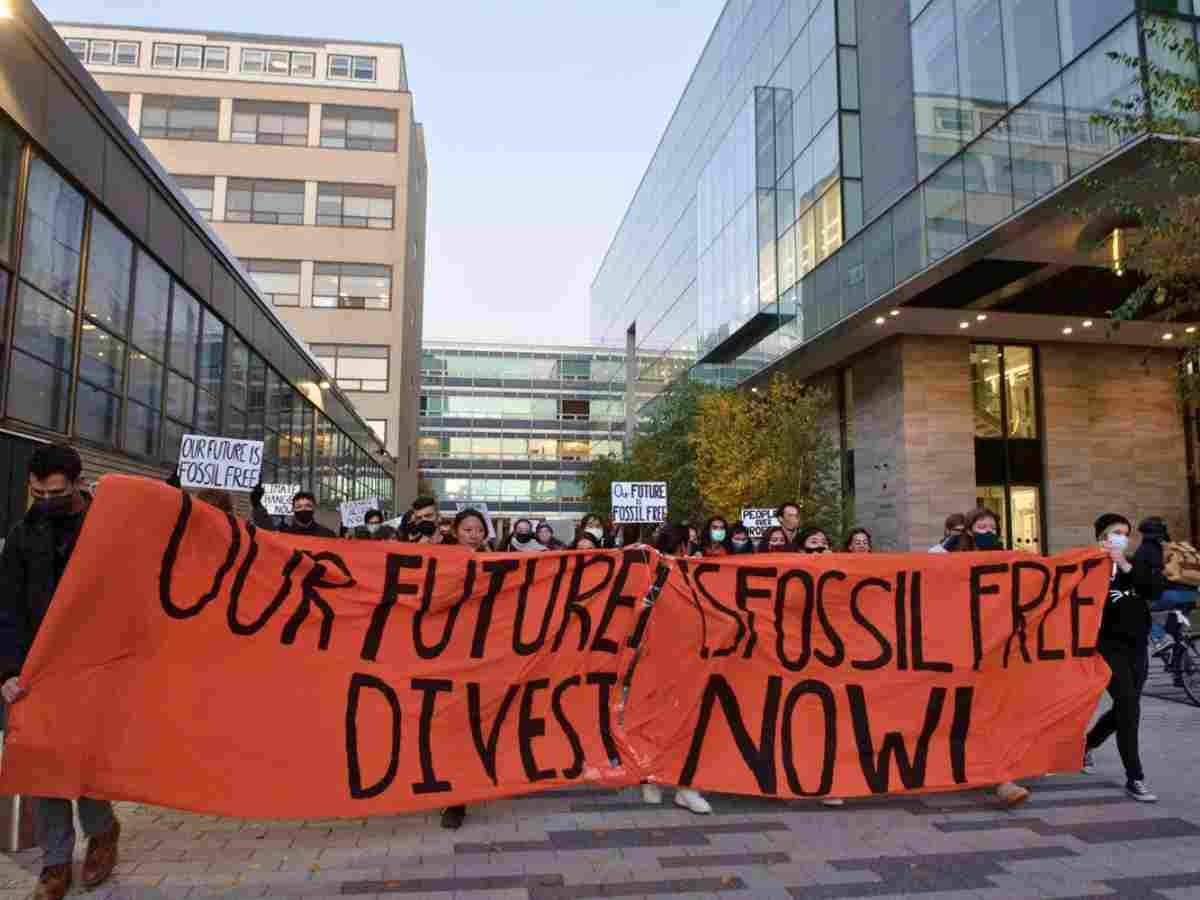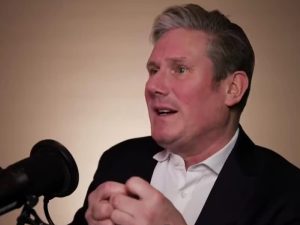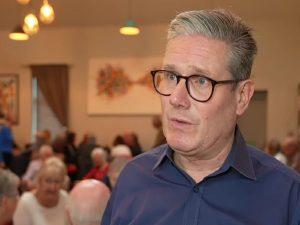Over three-quarters of UK universities have pledged to exclude fossil fuel companies from their investment portfolios, following Birmingham City University, Glasgow School of Art, Royal Northern College of Music, and the University of Bradford all incorporating fossil fuel industry exclusions into their Ethical Investment Policies.
Universities: divesting from fossil fuels en-masse
People & Planet have announced that over three-quarters of UK universities have pledged to exclude fossil fuel companies from their investment portfolios. This follows Birmingham City University, Glasgow School of Art, Royal Northern College of Music and the University of Bradford incorporating fossil fuel industry exclusions into their Ethical Investment Policies.
115 (out of 149) UK universities have now publicly committed to divest from fossil fuels, representing 77% of the UK Higher Education sector and £17.7bn worth of endowments now out of reach for fossil fuel industry investment.
These four Fossil Free victories were uncovered by 2024 People & Planet University League research. The People & Planet University League ranks UK universities by their ethical and environmental performance. The full 2024 dataset is due to be launched imminently.
This campaign milestone has been achieved through relentless student campaigning for Fossil Free over the course of more than a decade, often with support from university staff.
Fossil free, finally
Launched in 2013 the Fossil Free campaign demands the exclusion of fossil fuel extractor companies from university investments in solidarity with the Indigenous and frontline communities experiencing both the impacts of the global climate crisis and fossil fuel extraction projects.
These extraction projects include the East African Crude Oil Pipeline (‘EACOP’). Consisting of 1,443km of pipeline, TotalEnergies and CNOOC intend to use it to transport crude oil from the Lake Albert region of Uganda to the Port of Tanga, Tanzania. The pipeline is being built in spite of local community opposition and resistance, with protests and critics often being met with state violence.
This includes the alleged abduction and beating of Stephen Kwikiriza in June 2024, a worker for a non-profit organisation who had been documenting alleged human rights abuses. Hundreds of student organisers have been involved in the struggle against its construction, supported by Stop EACOP Uganda. Scores of students have been arrested for their defiance.
Student campaigners intend to maintain pressure on the 34 UK universities yet to go Fossil Free, by highlighting their minority status in the university sector. Institutions under pressure include the University of Strathclyde in Scotland, where student campaigners have been demanding divestment for over five years.
Still more to be done
Laura Clayson, Campaign Manager for Climate Justice at People & Planet, said:
Over three-quarters of UK universities excluding fossil fuels from their investments would have been unimaginable just a decade ago. That we can celebrate this today is down to the generations of students and staff that have fought for justice in solidarity with impacted communities. The days of UK universities profiteering from investments in this neo-colonial industry are over. In solidarity with frontline communities, such as those resisting the building of EACOP, we look forward to announcing the sector’s stragglers as Fossil Free very soon.
Ntambazi Imuran Java, lead coordinator and Stop EACOP Uganda, said:
We appreciate and celebrate the efforts of all stakeholders who have campaigned to end fossil fuel investments, in support of those who have worked tirelessly to stop deadly extraction projects like EACOP. Efforts are emerging and results at this moment are witnessed. Regardless of the arrests and violations on the activists, students’ activists and communities, we continue to demand for the Uganda authorities to stop the project and instead invest in renewables.
To us the activists We continue to assert and commit to our principles of non-violence to challenge the EACOP project. We therefore call for your urgent intervention and support to aid us to continue putting pressure to the Ugandan government and shareholders of EACOP.
Featured image supplied




